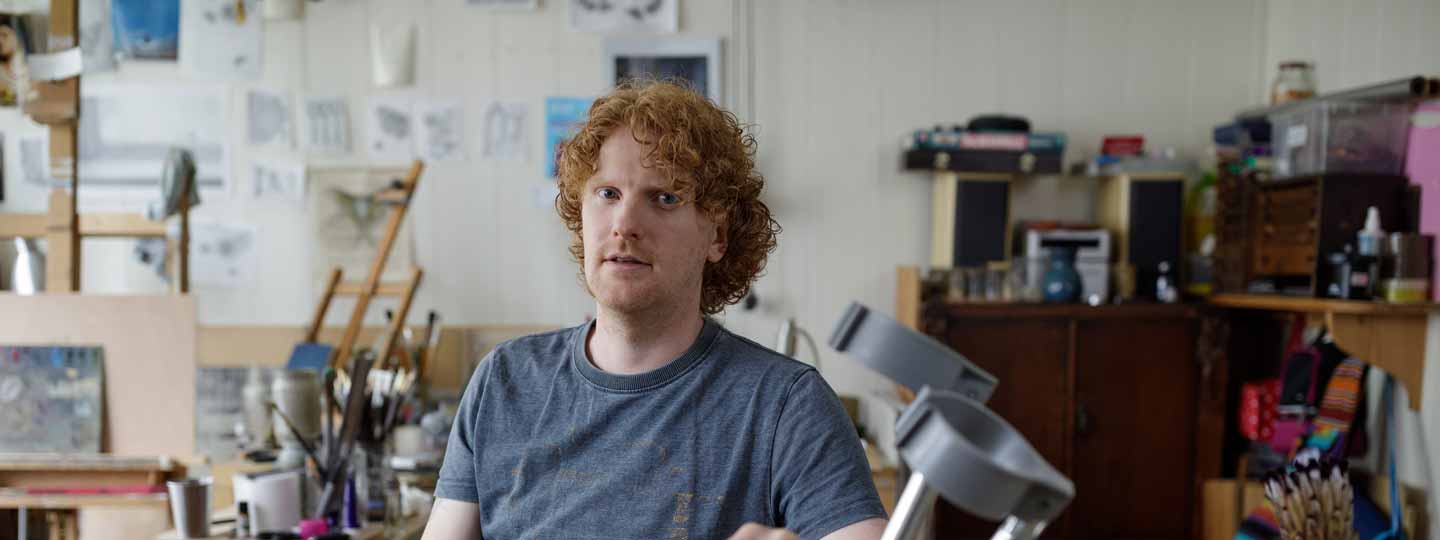How to adapt when you’ve been diagnosed with arthritis
24 August 2021
When you are diagnosed with a type of arthritis it is likely to stir up a lot of emotions for both the person receiving the diagnosis and their partner and immediate family, observes counsellor and psychotherapist Kirsty Taylor, member of the British Association for Counselling & Psychotherapy.
“There may initially be feelings of shock, anxiety and being overwhelmed; not only with the reality of doctors’ appointments, medication, lifestyle changes and issues with pain, but also with the prospect of living with a long-term illness,” she says.
According to Kirsty, people can feel angry that their life is about to change. “They may feel anger at themselves for their body letting them down in some way, and anger at others for not being able to fix them,” she says. “Anger is a very normal emotion as you adjust to living with a long-term condition.”
There may be an element of grief and a feeling of sadness over the loss of potential plans you had made, of things you will no longer be able to do, or activities and things you love that might be more difficult to do, she adds.
Coping with shock
It is normal to feel anxious and scared when you receive a diagnosis; the future is suddenly a bit less clear, and your mind may go to the worst-case scenario. You might feel stressed and potentially embarrassed at needing to ask for help, and at the physical difficulties that may arise – which can impact not only your relationships, but your self-image, too.
“You might lack confidence in your body, feel let down that it cannot be relied on anymore and you may experience symptoms of depression and low mood as you adjust to the reality of living with a long-term health condition,” explains Kirsty.
“You might feel resilient one day and anxious the next. It is important to remember that these emotions are a normal part of how we react to shock and change. Talking therapies can also be a great way to have a safe space to explore some of the feelings.”
Giving yourself space
According to Kirsty, if we don’t take space to feel, we can’t heal. It is important to let yourself feel sad sometimes, to allow those feelings of loss and anger and sadness and give yourself some quiet time to process them. Allowing yourself some quiet time in the day will give you some space to focus and to concentrate on your breathing.
“Deep breathing techniques are especially useful to promote inner peace and a sense of calm, as well as relaxing your muscles,” says Kirsty.
Peer support
It can be useful to find some support with other people who are going through the same thing. This might involve taking up a new activity such as walking in a group, joining a support group for others with the same diagnosis, or finding a place where it is safe to share experiences with those who really understand.
Join our online community and chat to others living with arthritis. You can also read other's people's experiences of diagnosis and what has helped them.
- "I was diagnosed about ten weeks ago. I was put on Methotrexate, Hydroxychloroquine and Folic Acid."
- "I was diagnosed last week with level 2 arthritis in both hips. Until a month ago I’d had no symptoms at all. The pain came on almost overnight."
Talking therapies can also be a great way to have a safe space to explore some of the feelings you will experience as you accept and adjust to life with your condition. It can also be useful to keep a journal if you find that helpful.
“Writing things down can help reduce negative thoughts and provide a space to work things through that feel overwhelming,” says Kirsty.
Our healthy habit tips
- Exercise: Build a daily exercise routine that is manageable, enjoyable, varied and one that you can stick to.
- Eating habits: Maintain a healthy, low-fat, high-fibre diet to keep cholesterol and body weight within acceptable ranges to avoid extra pressure on your joints and organs.
- Managing stress: Recognise the symptoms of stress and try to manage them as soon as you begin to notice them. Stress can exacerbate joint pain and can interrupt sleep.
- Having a bath is a lovely way to relax, to lower stress levels and to provide some temporary relief from joint pain. Some people find Epsom salts soothing when added to a warm bath, but don’t use them if you have broken skin.
- Work-life balance: Ensure you tell your manager about your diagnosis and build in some safety nets when needed.
- Relationships: Keep talking. It can be difficult for friends, partners and family to feel connected when someone is dealing with a diagnosis that means their body will not function in the same way. Communicate about what’s going on, about how the diagnosis is affecting you all and how you can move forward and support each other.
- Around the home: Do what you can to make your home more liveable. There are plenty of gadgets available for household tasks. Let go of things that really don’t need to be done and ask for help when you can.
This article is adapted from our Inspire magazine, read the magazine in full.
We’re here whenever you need us.
- If you would like to talk to someone, you can call our free helpline on 0800 5200 520
- Talk to our arthritis virtual assistant, 24/7
- Join our online community
- Stay in touch and follow us on Twitter, Facebook and Instagram.